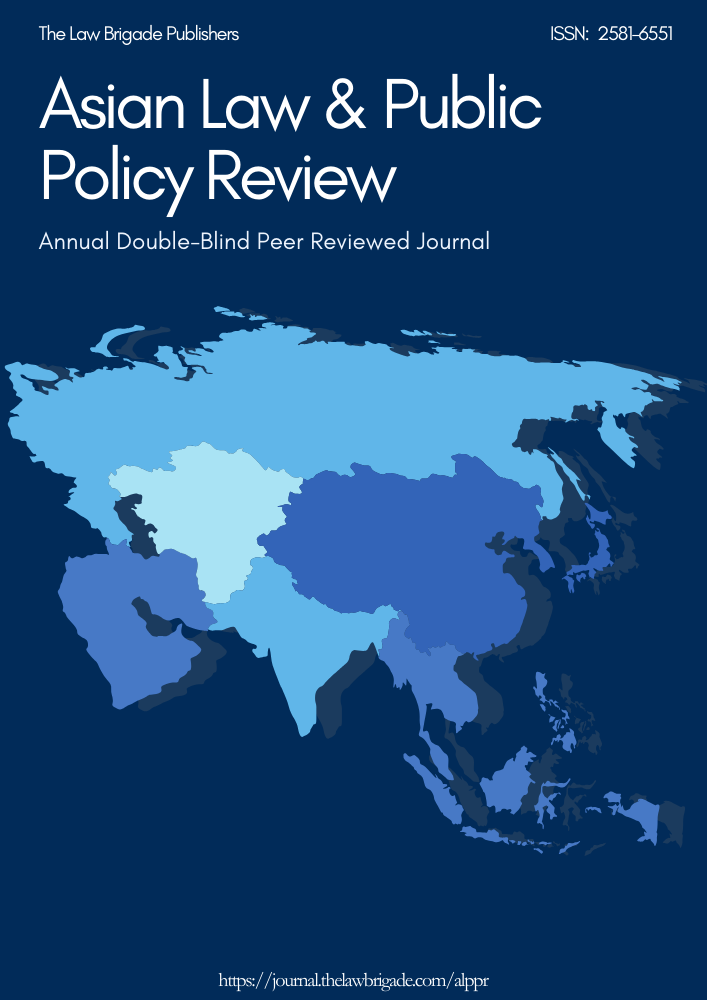The Partial Decriminalization Of Suicide In India
Keywords:
Suicide, Attempt to suicide, Decriminalization of suicide, Section 309, Mental Healthcare ActAbstract
Section 309 of the Indian Penal Code criminalizes “an attempt to commit suicide” with a punishment ranging from “simple imprisonment for a term up to one year or with fine, or with both”.[i] While the Penal Code does not attempt to define suicide, the common understanding that this paper seeks to argue should be decriminalized is an act of intentionally taking one’s life.
The Law Commission has twice, in 1971[ii] and 2008,[iii] recommended repealing Section 309. In fact, in 1978. The IPC (Amendment) Bill 1978[iv] was even passed by the Rajya Sabha, but the Parliament had dissolved before the Lok Sabha could pass it, and the bill lapsed. In March 2011 and again in 2018, the Supreme Court also recommended that Parliament consider deleting this Section.[v]
Finally, in 2017, the Mental Healthcare Act was passed, coming into effect in 2018, which effectively decriminalized suicide. Section 115(1) of the Mental Healthcare Act provides that “notwithstanding anything contained in Section 309”, a person who attempts suicide will be, “unless proved otherwise” to have severe stress and shall not be tried and punished under the said Code.” Further, under clause 2, it casts a duty on the government to provide treatment and rehabilitation to persons having “severe stress and who attempted to commit suicide”.[vi] While this is more progressive than the punitive nature of Section 309, it is a job half done at best. This paper aims to analyse the issues inherent in our current legal system that has partially decriminalized suicide through the Mental Healthcare Act while simultaneously retaining Section 309 and propose reforms to reduce the onerous burdens currently placed on the victims, who continue to be treated as criminals.
Downloads
Downloads
Published
Issue
Section
License

This work is licensed under a Creative Commons Attribution-NonCommercial-ShareAlike 4.0 International License.
License Terms
Ownership and Licensing:
Authors of research papers submitted to any journal published by The Law Brigade Publishers retain the copyright of their work while granting the journal specific rights. Authors maintain ownership of the copyright and grant the journal the right of first publication. Simultaneously, authors agree to license their research papers under the Creative Commons Attribution-ShareAlike 4.0 International (CC BY-SA 4.0) License.
License Permissions:
Under the CC BY-SA 4.0 License, others are permitted to share and adapt the work, even for commercial purposes, provided that appropriate attribution is given to the authors, and acknowledgment is made of the initial publication by The Law Brigade Publishers. This license encourages the broad dissemination and reuse of research papers while ensuring that the original work is properly credited.
Additional Distribution Arrangements:
Authors are free to enter into separate, non-exclusive contractual arrangements for distributing the published version of the work (e.g., posting it to institutional repositories or publishing it in books), provided that the original publication by The Law Brigade Publishers is acknowledged.
Online Posting:
Authors are encouraged to share their work online (e.g., in institutional repositories or on personal websites) both prior to submission and after publication. This practice can facilitate productive exchanges and increase the visibility and citation of the work.
Responsibility and Liability:
Authors are responsible for ensuring that their submitted research papers do not infringe on the copyright, privacy, or other rights of third parties. The Law Brigade Publishers disclaims any liability for any copyright infringement or violation of third-party rights within the submitted research papers.


